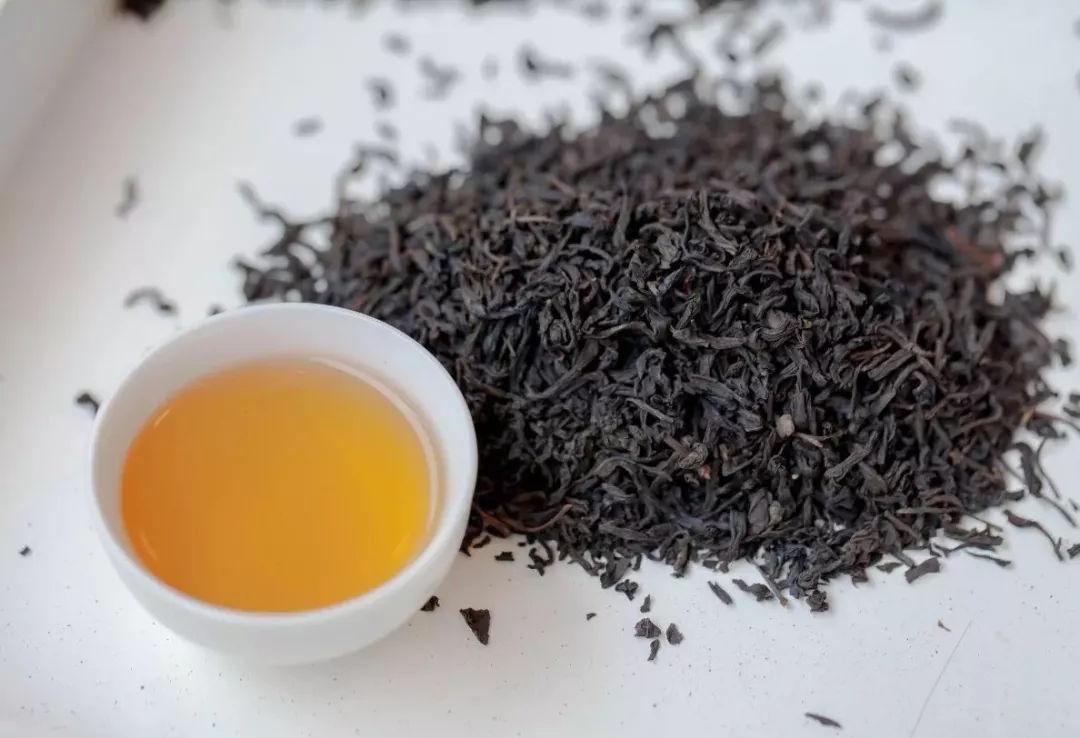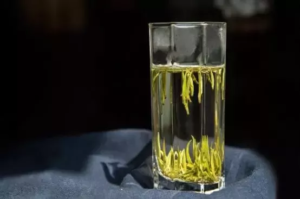Zheng Shan Xiao Zhong, literally meaning “authentic mountain small tea plant” in Mandarin Chinese, is a unique black tea from Wuyi mountain, Fujian Province, China, the hometown of legendary Wuyi Rock Oolong Teas. In the West, people are more familiar with the heavily smoked version of this tea, Lapsang Souchong. Zheng Shan Xiao Zhong is produced in a well-protected and natural area deep in a valley of the Wu Yi Mountain, which is also the birthplace of oolongs and home to some of the finest in the world. This incredible tea is organically-grown and traditionally crafted in a 20-step process that involves 3 different phases of smoking over pine wood. It is grown and smoked in Tong Mu, which is a UNESCO World Heritage Site.
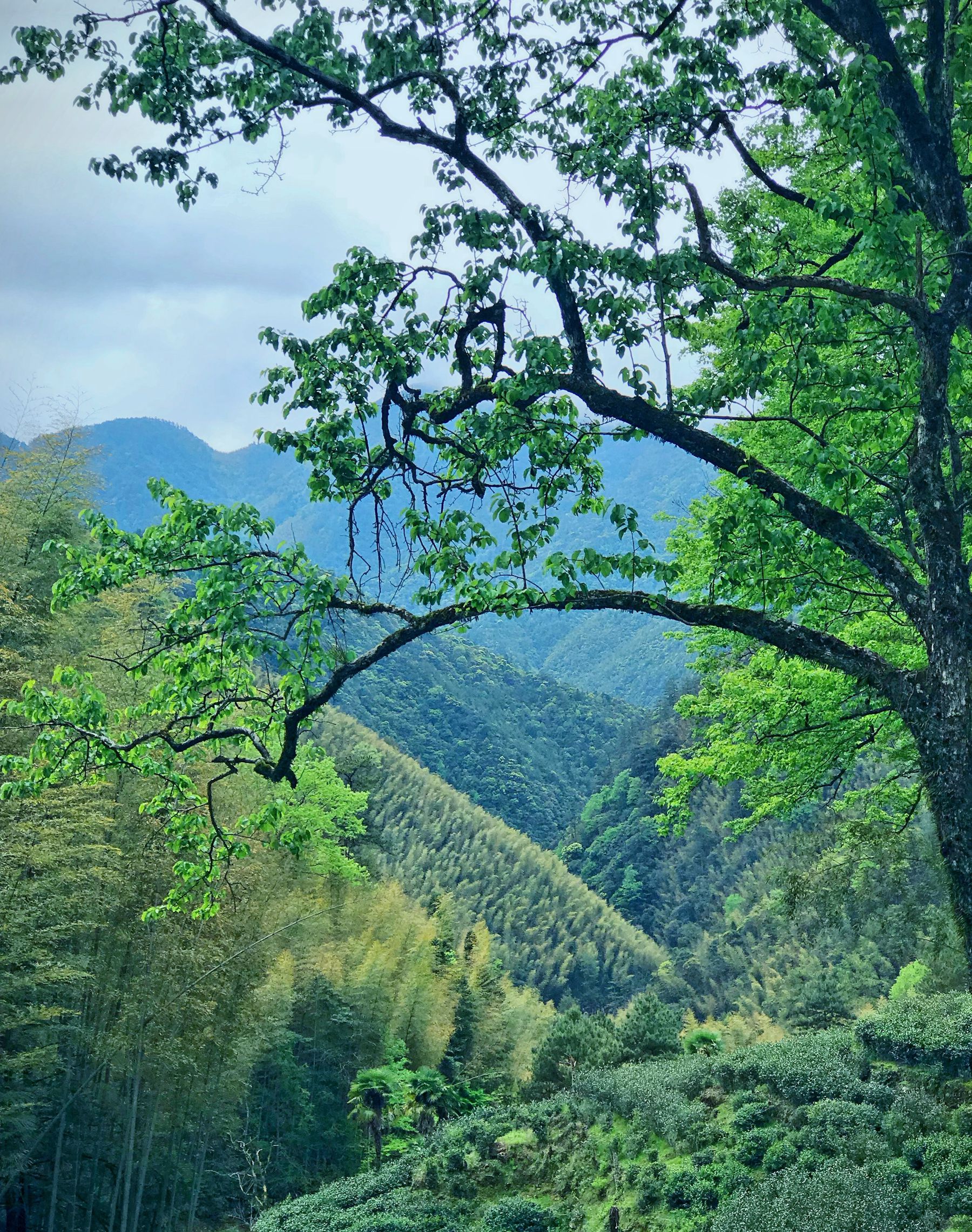
For the Zheng Shan Xiao Zhong, the smokiness was a natural and subtle addition that came from drying the leaves in a wok heated by pine wood. The smoke from the pine wood naturally mixed with the tea, creating a deeper and more foresty flavor that accentuated the tea’s minerality. Balanced and sweet brew will bring a dried longyan and lychee flavor, accented with pine. The sweet, roasted quality of the smoke processing blends with the rich flavor of the tea to yield a dark fruity flavor, bringing the mineral texture of the soil of Wuyi.
Legend
Zheng Shan Xiao Zhong, the first black tea, was invented by accident in Ming Dynasty. According to legend, a platoon of soldiers decided to cross Huanggang Shan in the Wuyi mountains to travel from Jiangxi to Fujian. One night, they stopped to rest in Tongmu and commandeered a local farmer’s home to sleep. They rested on piles of fresh green tea leaves that had been withering in the family courtyard. This tea was allowed to fully oxidize before the farmers could collect it and finish it the next day. The result was a deep black tea with a sweet and mild taste.
Over time, farmers grew accustomed to the flavor of black tea, preferring it for its easier, gentler effect on the stomach and its honey-sweet flavor. This early black tea was made from the same Xiaozhong varietal leaf that tea farmers use today to pick and process their teas in Tongmu, which benefit from the rocky volcanic soil, cold nights, sweet spring water, and rich biodiversity of the Wuyi Ecological Preserve.
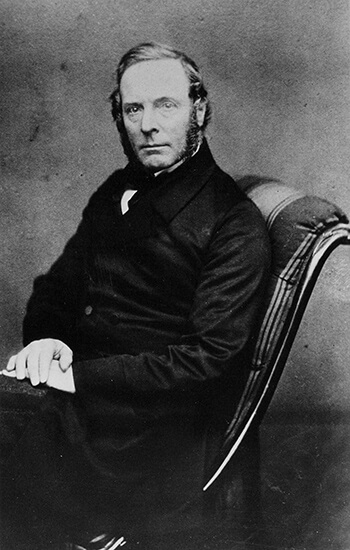
Additionally, this is the tea that is rumored , the British botanist, stole from China and planted in Darjeeling, India. It is the mother of Darjeeling and ancestor for many tea varietals around the world outside of East Asia.
The term “Zhengshan Xiaozhong” black tea was first known as WUYI BOHEA in Europe, where WUYI is a homonym of Wuyi; in Europe (UK) it is a symbol of Chinese tea. Later, due to trade prosperity, local people distinguished other counterfeit small black teas (artificial races or tobacco races) disturb the market, so the name is “Zhengshan race”. “Zhengshan” means correct and authentic, wich refers to Tongmu and the same altitude as Tongmu: the same area, made with the same traditional craft, and have the same quality. “Race” refers to its tea tree varieties are small-leaf species, and the production area and production process are affected by the regional microclimate. Therefore, “Zhengshan race” is also called Tongmuguan race.
Production
Zheng Shan Xiao Zhong is crafted in a specially made three-story wooden house lined with nothing but woven bamboo sheets, called Qing Lou (Qing Lou means green house, but it is actually a smoking house). Specific pine woods are burned underground to fill the whole Qing Lou with smoke. The entire wilting and fermentation steps of the tea leaves happen within Qing Lou. Not only does this solve the problem of extreme cold weather that is detrimental to making red tea, it also makes sure that the smokiness of the tea is gentle, but deeply penetrated.
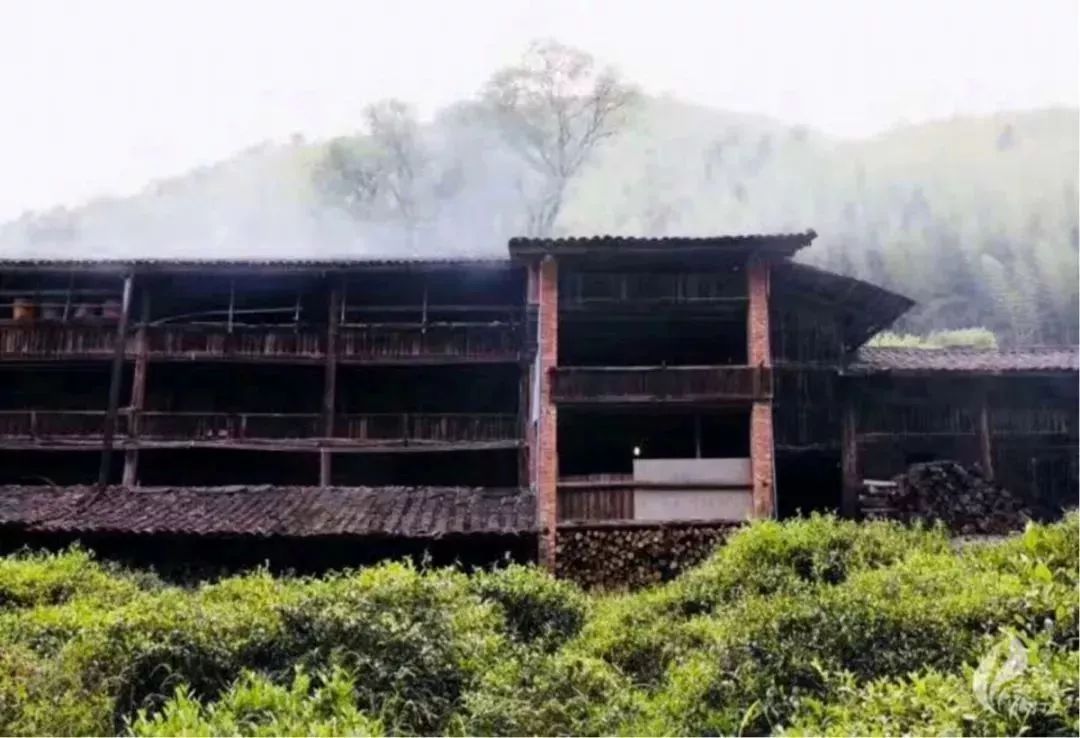
Harvested from Tong Mu, one of the coldest tea terroirs in the world, a true Zheng Shan Xiao Zhong has pristine sweetness and a buttery, floral mouthfeel. The smokiness compliments the sophisticated undertone of the red tea and never overpowers it.
The preliminary production technology of Zheng Shan Xiao Zhong is divided into: picking tea leaves—withering—kneading—fermentation—frying —re-kneading—smoking-roasting—re-fire and other processes. Refining technique is divided into: grading and stacking-raw tea piling-sieving-fermentation-selection-sorting-roasting-uniform-packing-finished products.
It is there, primarily in Tong Mu Village and adjacent small tea villages, that this smoked Zheng Shan Xiao Zhong tea is made. The fresh leaf comes from tea gardens that are located in the vicinity of the smoking sheds. Here, the fresh leaf is processed and smoked during the production of this unique black tea. The leaf is essentially given a ‘cold smoking’ during processing, which gives this tea a lightly-smoked character while maintaining flavor and finesse.
Benefit
Zheng Shan Xiao Zhong has several health benefits, most of which can be attributed to its favorable nutritional profile. Due to increased oxidation, black tea, the variety that Zheng Shan Xiao Zhong belongs to, is more flavourful and caffeine laden than its other counterparts. The black tea’s benefits for health are given below.
- Cardiovascular Benefits:The antioxidants such as flavonoids present in black tea prevent the oxidation of LDL cholesterol. It prevents the damage to blood stream and artery walls and lowers the risk of heart disease. Black tea flavonoids are effective in improving coronary vasodilation and reducing blood clots. Polyphenols and manganese present in black tea reduce the risk of coronary heart disease by helping cardiac muscle function.
- Cancer Prevention:The antioxidants called polyphenols found in black tea help in preventing the formation of potential carcinogens in the body, resulting in prevention of certain cancers like ovarian, lung, prostrate, colourectal and bladder cancers. Black tea contains a compound called TF-2 which is responsible for causing apoptosis (programmed death of cancer cells) while the normal cells remain unaffected. Additionally, black tea can also significantly reduce the risk of oral cancer in those who smoke cigarettes or use other tobacco products. Black tea also prevents cancer by inhibiting the formation and growth of malignant tumours.
- Eliminates Free Radicals:Free radicals in the body can cause various cell damages such as blood clot formation, cancer and atherosclerosis. Consumption of unhealthy food increases the number of free radicals in your body. The antioxidants present in black tea remove these harmful free radicals, thus protecting the body from diseases such as Alzheimer’s and heart diseases. Black tea with lemon is a good choice to make for this action.
- Boosts the Immune System:A strong immune system is necessary for fighting bacteria and viruses that can cause illnesses. Black tea contains substances called ‘tannins’ which have the ability to fight viruses such as influenza, dysentery, hepatitis, colds and flu. One such tannin called ‘catechin’ helps in suppressing tumours. The alkylamine antigens in black tea boost immune response. Drinking 3 to 4 cups of black tea each day helps in lowering inflammation and eliminates harmful pathogen.
- Oral Health:The catechin antioxidants contained in black tea help in the reduction of oral cancers. Polyphenols and tannin act as antibiotics, thus inhibiting bacteria that cause tooth decay. Black tea contains fluoride which fights bad breath and prevents tooth decay by eradicating harmful bacteria from oral cavity. A daily dose of two cups black tea provides around 1.5 mg fluorides.
- Stimulates the Brain and Nervous System:Black tea contains lower levels of caffeine than coffee. The low amounts of caffeine promote blood flow in the brain without stimulating the heart and improve mental alertness and concentration. The amino acid L-theanine found in black tea can help you relax and concentrate fully on tasks.
- Benefits the Digestive Tract:The tannins in black tea are beneficial for digestion. These tannins help combat gastric and intestinal illnesses by having a therapeutic effect. Besides, they exercise an anti-diarrheal effect and help in decreasing intestinal activity. The polyphenols help in lowering intestinal inflammation suffered by patients of irritable bowel syndrome.
- Healthy Bones and Connective Tissue:The powerful phytochemicals in black tea help in strengthening the bones and connective tissue. In fact, research has proved that black tea drinkers have comparatively healthier bones.
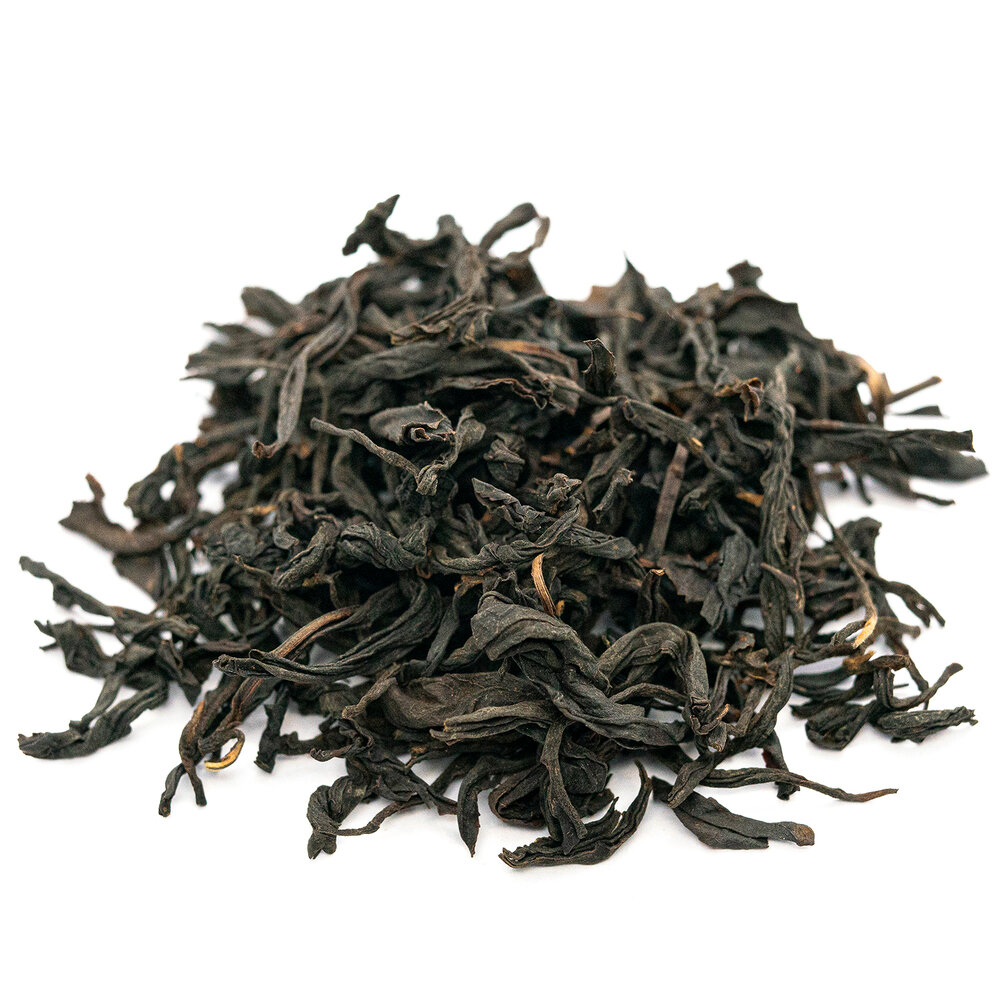
Preparation
Brewing tool: tea pot, Gaiwan
Water temperature: 90°-95°C (194° – 203° F)
Amount of tea: 5g
Amount of water: 150 ml (5 oz).
Steeping Time:
Put the hot water & tea into a cup. Stirring the tea will help make the tea flavor come out faster.
Stir for about 30 – 60 seconds for the first cup, strain it out.
If you want more tea after the first cup, put more water back in the cup, steep for another 30 – 90 seconds, then strain it. Out. This amount of tea leaves can make 3 – 4 cups of tea.
